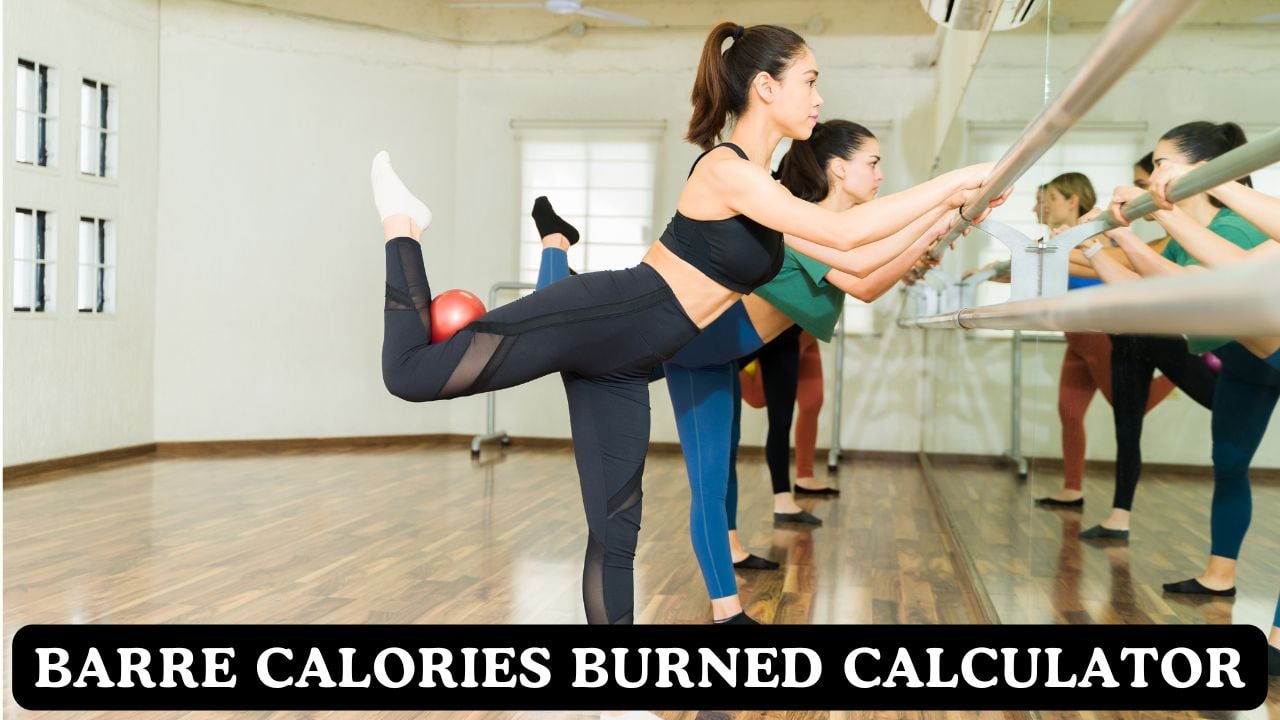Barre Calories Burned Calculator
Calculate calories burned during barre workouts using scientifically validated MET values

How Many Calories Does Barre Burn?
Barre workouts can burn between 180-480 calories per hour, depending on workout intensity, your body weight, equipment level, and experience. A typical 45-minute moderate intensity barre class burns approximately 225-360 calories for most adults. Barre is classified as a moderate cardiovascular activity (3.5-6.0 METs) that combines ballet-inspired movements with Pilates-style exercises for excellent calorie burn with low joint impact.
Key factors affecting calorie burn:
- Intensity: Light (4.0 MET) vs vigorous (6.0 MET) can double calorie expenditure
- Equipment: Full setup with resistance increases burn by 15-20%
- Duration: 60-minute classes burn 2-3x more than 30-minute sessions
- Experience: Advanced practitioners move more efficiently, potentially burning 10-15% more
How the Barre Formula Works
The calorie calculation uses the MET (Metabolic Equivalent of Task) system:
The formula accounts for your body weight, exercise intensity, and duration to give accurate estimates.
Why Use This Calculator Instead of Estimates
Generic calorie estimates don’t account for your specific body weight, fitness level, or the intensity of your particular class. This calculator uses scientifically validated MET values and considers all the factors that affect calorie burn.
You get personalized results that help you track progress and plan your nutrition accordingly.
Barre Intensity Levels Explained
Barre intensity levels are measured using MET values, which represent how much energy your body uses compared to resting. Higher MET values mean more calories burned per minute of activity. Your class intensity depends on the instructor’s style, music tempo, and whether equipment like resistance bands or weights are used.
Factors That Affect Calorie Burn:
- Body weight: Heavier people burn more calories
- Intensity: Vigorous classes burn 25-50% more than light classes
- Equipment: Resistance tools increase muscle engagement
- Experience: Advanced practitioners move more efficiently
- Music tempo: Faster music encourages quicker movements
All these factors are included in the calculation for accurate results.
How Barre Compares to Popular Workouts
Barre provides a unique combination of strength, flexibility, and balance training. Here’s how it compares to other popular activities for a 150-pound person:
- Barre – Vigorous (5.0 MET): 300 calories/hour – Combines strength and cardio
- Pilates – Mat (3.7 MET): 220 calories/hour – Focuses on core control
- Yoga – Vinyasa (4.0 MET): 240 calories/hour – Emphasizes flexibility
- Dance – Modern (4.8 MET): 290 calories/hour – More cardio-focused
Barre offers the best of multiple disciplines in one workout.
Research and Science Behind Barre
Barre workouts are backed by research showing improvements in core strength, balance, flexibility, and functional movement. Studies confirm that barre provides cardiovascular benefits comparable to moderate-intensity aerobic exercise. The MET values used in this calculator come from the Compendium of Physical Activities, the gold standard for exercise intensity measurement.
Health Benefits Beyond Calorie Burn:
- Core strength: Isometric holds develop deep abdominal muscles
- Balance improvement: Ballet positions enhance proprioception
- Flexibility gains: Dynamic stretching improves joint mobility
- Posture correction: Strengthens muscles that support good posture
- Low-impact cardio: Provides heart health benefits without joint stress
